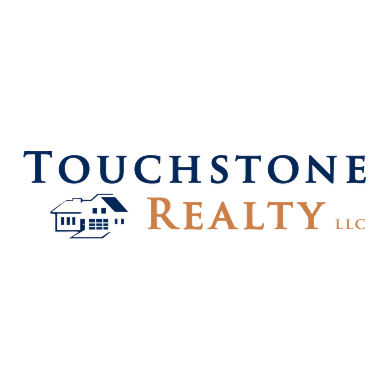Rental property accounting in Ocala, FL, is simplified by separating personal and business finances, consistently tracking income and expenses, staying on top of local tax requirements, and leveraging software or professional guidance to ensure accuracy and maximize deductions.
Many rental property owners struggle with accurate bookkeeping and tax compliance. Proper accounting isn't just about taxes; it's about understanding the true performance of your property, spotting trends, and planning for growth.
Imagine having a clear, reliable system that tracks every dollar, maximizes deductions, and prepares you for any audit with confidence. With simple accounting strategies, you can focus less on paperwork and more on increasing tenant satisfaction, reducing vacancies, and growing your rental income.
In this guide, we'll share essential rental property accounting tips, step-by-step strategies, and practical advice specifically for Ocala property owners so you can streamline finances, protect your investment, and achieve long-term property management success.
What Accounting Records Should Landlords Keep?
Keeping proper documentation is crucial for rental property owners. Landlords should save receipts, invoices, rent payment confirmations, bank statements, and maintenance logs. These records not only make tax filing easier but also provide protection in case of disputes or audits. Digital storage systems or property management software can simplify the process.
What Tax Rules Should Ocala Landlords Know?
Florida has no state income tax, but landlords must still comply with federal tax laws. Deductions like mortgage interest, depreciation, property taxes, insurance, and maintenance can significantly reduce taxable income. Consulting a tax professional familiar with local real estate helps ensure compliance and maximizes savings.
Essential Rental Property Accounting Tips
Managing rental property finances can feel overwhelming, but having a structured approach makes a huge difference. These essential tips help Ocala landlords maintain accurate records, reduce stress during tax season, and make informed financial decisions.
Separate Personal and Business Finances
One of the most important steps for property owners is to open a dedicated business bank account. Keeping personal and rental income separate simplifies bookkeeping, avoids confusion, and makes tax filing more straightforward. It also helps landlords clearly see property performance and easily identify business expenses for tax deductions.
Track Income and Expenses Consistently
Develop a system -- whether spreadsheets or accounting software -- that records rent payments, repairs, insurance, utilities, and even marketing expenses. Accurate tracking ensures nothing is overlooked and allows you to see how your property is performing month-to-month. Consistent monitoring also helps identify trends, such as rising maintenance costs or late rent payments, so you can take timely action.
Use Property Management Software
Technology can streamline the accounting process. Tools that track rent, automate invoices, and generate reports reduce manual errors and give landlords more time to focus on improving their rental business. Many software options also offer mobile access, making it convenient to update finances on the go.
Plan for Unexpected Costs
Setting aside part of your rental income for emergencies is a smart financial practice. Whether it's a sudden repair or tenant turnover, having a reserve fund ensures you won't be caught off guard financially. This preparation also provides peace of mind and helps avoid dipping into personal funds when urgent issues arise.
Work with a Professional Accountant
Even with software, landlords can benefit from professional guidance. An accountant who understands rental property accounting can help optimize deductions, prepare financial statements, and ensure compliance with tax laws. Their expertise can also provide strategic insights into growth opportunities and ways to improve overall property management success.
FAQs About Rental Property Accounting in Ocala, FL
1. How Often Should I Update My Accounting Records?
Ideally, landlords should update records weekly or at least monthly. Regular updates ensure that rent payments, maintenance costs, and other expenses are accurately recorded, reducing the risk of overlooked transactions and making year-end reporting much easier. Consistency also helps identify patterns and potential financial issues early.
2. What Deductions Can Rental Property Owners in Ocala Claim?
Common deductions include mortgage interest, property taxes, insurance, repairs, maintenance, depreciation, and management fees. Keeping detailed records of these expenses ensures you can maximize deductions and reduce taxable income, ultimately increasing your return on investment.
3. Can Property Management Software Really Save Time?
Yes. Accounting and property management software automate invoicing, track payments, and generate financial reports. This reduces manual errors, saves hours of administrative work, and allows landlords to focus on tenant relations and property improvements. Many programs also integrate with tax software, simplifying annual filings.
4. How Can I Plan for Unexpected Costs Effectively?
Setting aside a portion of monthly rental income into a reserve fund is key. This fund can cover emergency repairs, sudden vacancies, or unforeseen property expenses. Regularly reviewing and adjusting this fund ensures you are prepared for seasonal maintenance, replacements, or other surprises without financial stress.
5. Should I Hire a Professional Accountant for a Single Property?
Even single-property owners can benefit from professional guidance. An accountant can help identify deductions, optimize tax strategies, and ensure compliance with both state and federal regulations. They can also provide advice on budgeting for future investments or expansions, supporting long-term property management success.
6. How Do Organized Records Help During Audits?
Having receipts, invoices, and statements neatly filed -- digitally or physically -- allows you to respond quickly to any audit requests. Organized records also make it easier to justify deductions, demonstrate cash flow accuracy, and show that your rental business is well-managed and compliant with tax laws.
7. Can I Track Rental Property Income and Expenses Without Software?
Yes, spreadsheets or ledger books can work if updated consistently. However, software simplifies calculations, reduces errors, and often provides visual dashboards to quickly assess property performance. Combining manual tracking with digital backups ensures redundancy and accuracy.
Partner With Experts for Property Management Success
Managing rental property finances in Ocala doesn't have to be overwhelming. At Touchstone Realty, we help Ocala property owners simplify both daily operations and long-term financial planning. From tracking rental income to offering professional rental property accounting support, our team ensures your investment stays profitable and stress-free.
Call us today to learn how our expertise can help you achieve better financial results with your rental properties.


